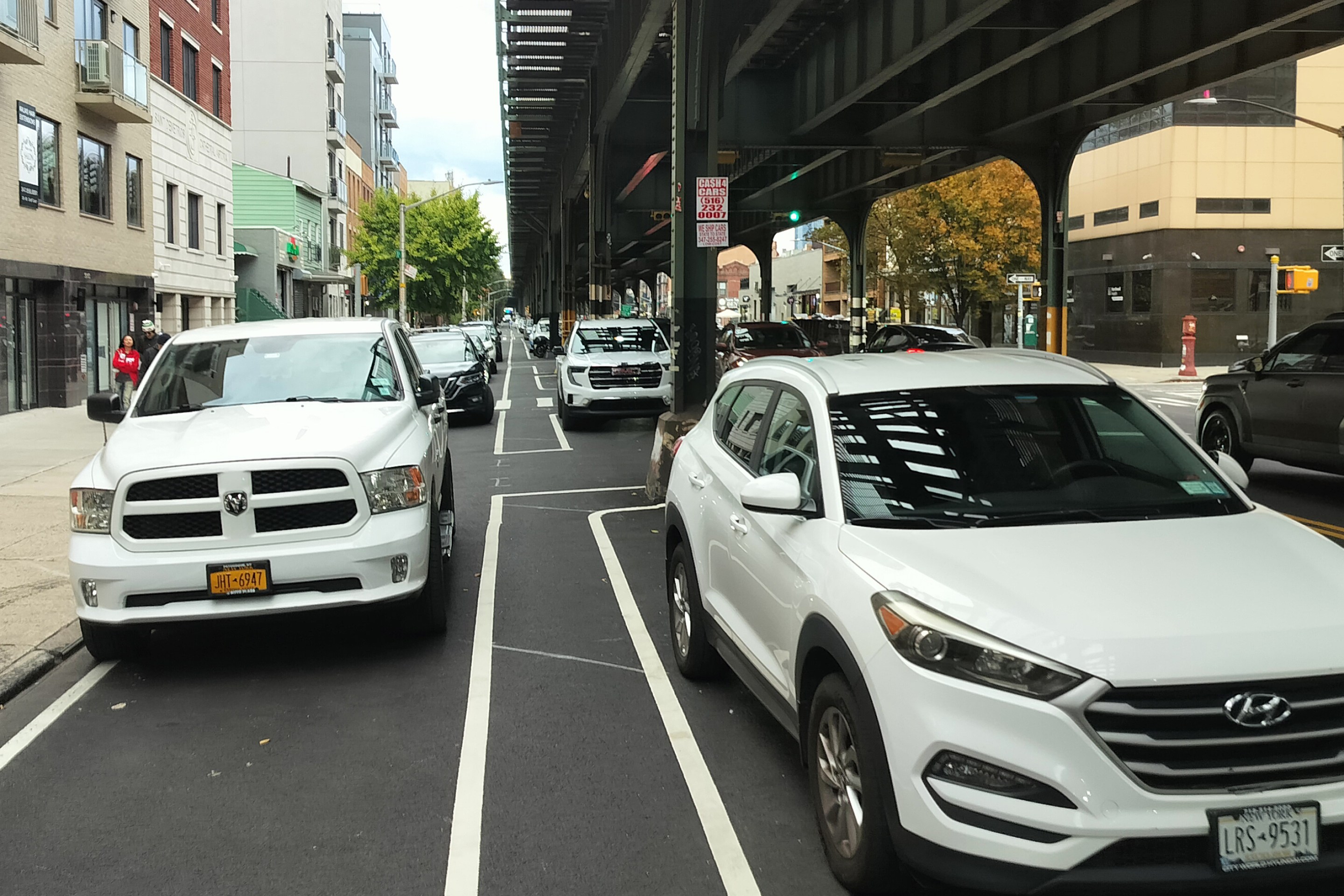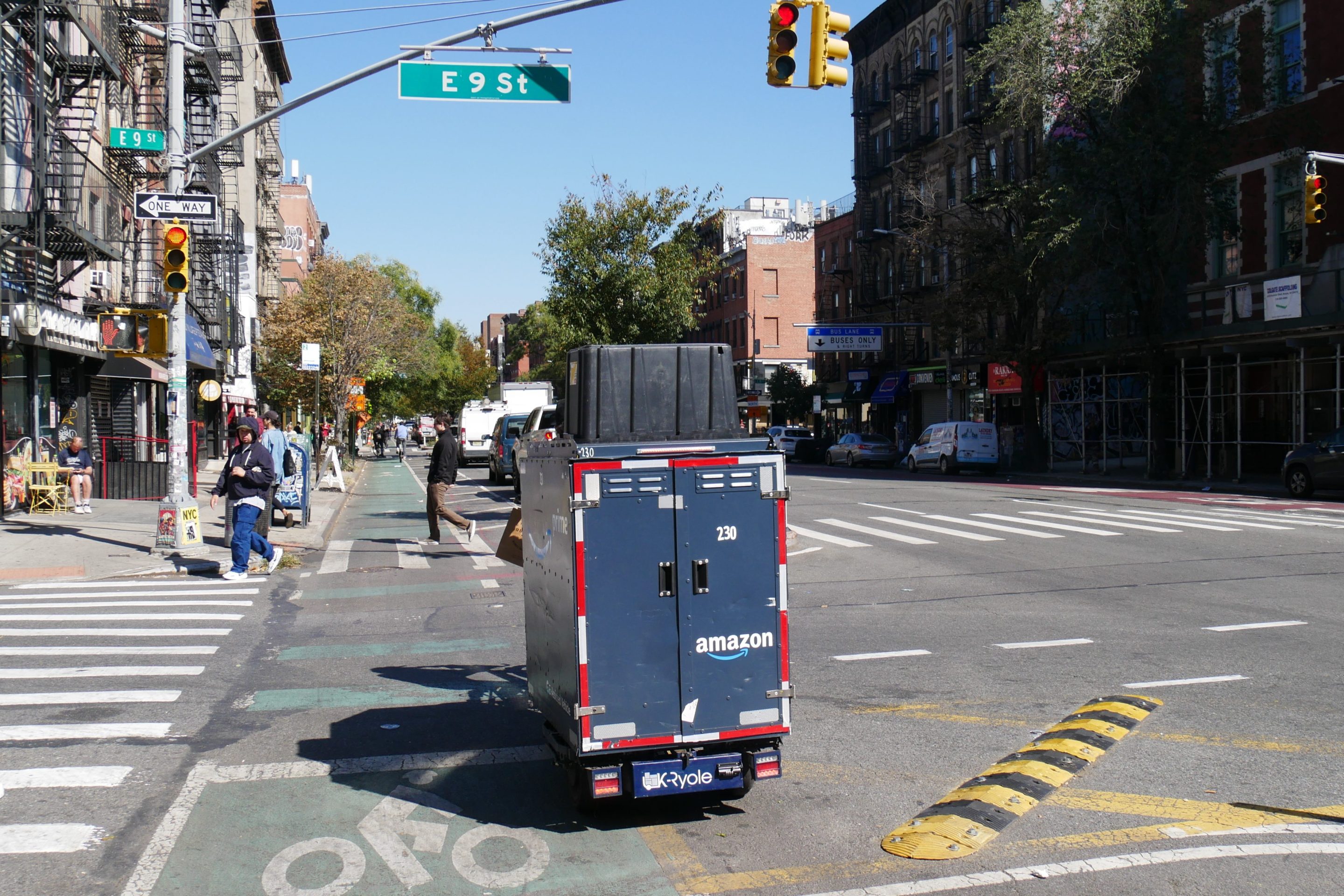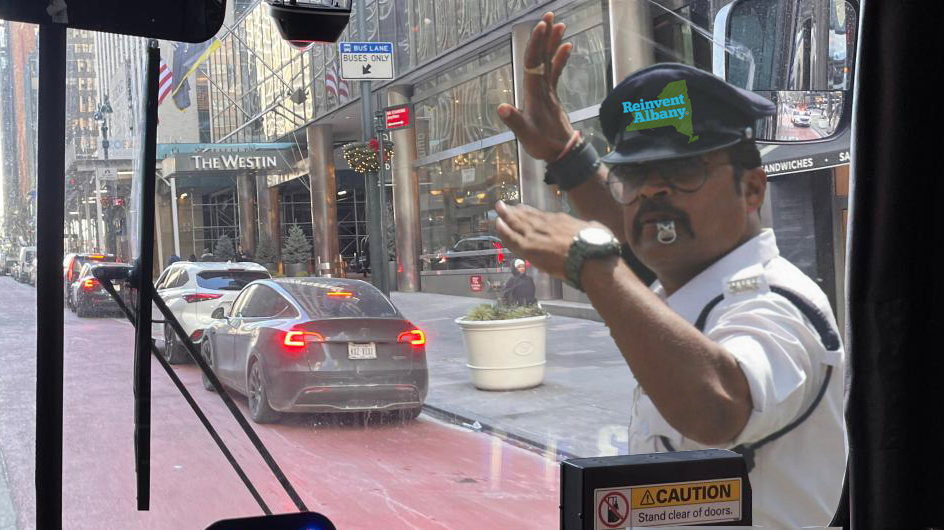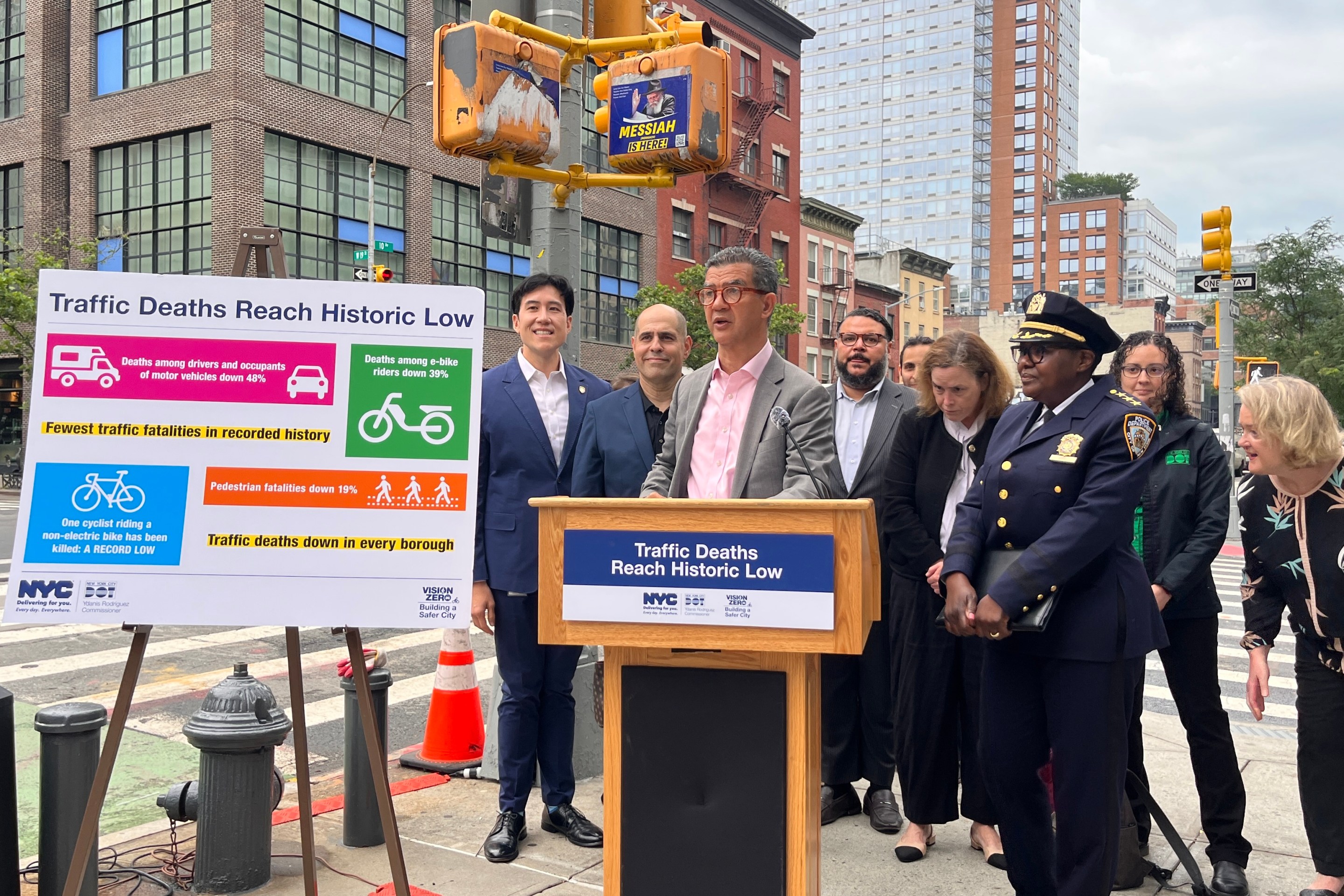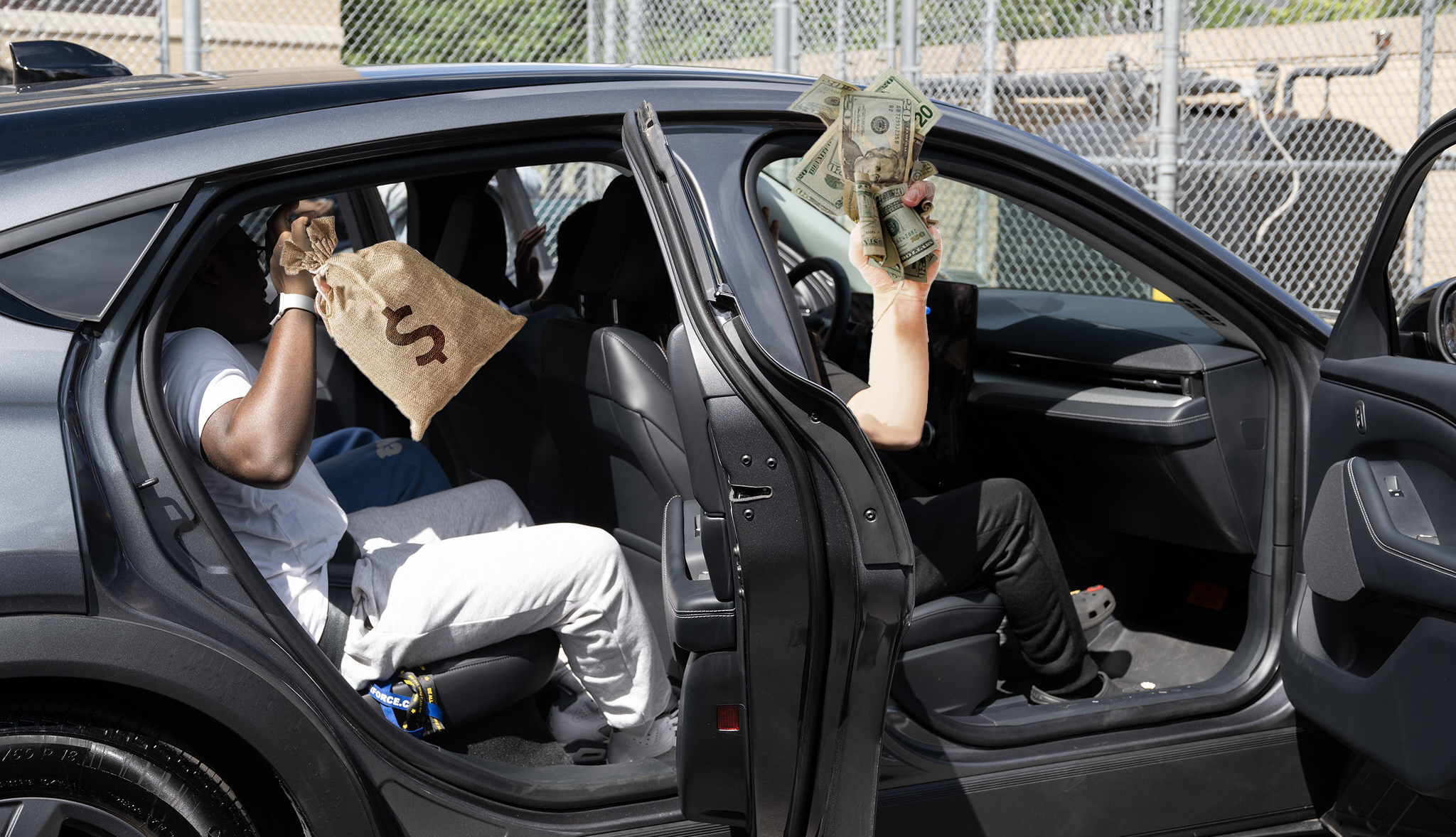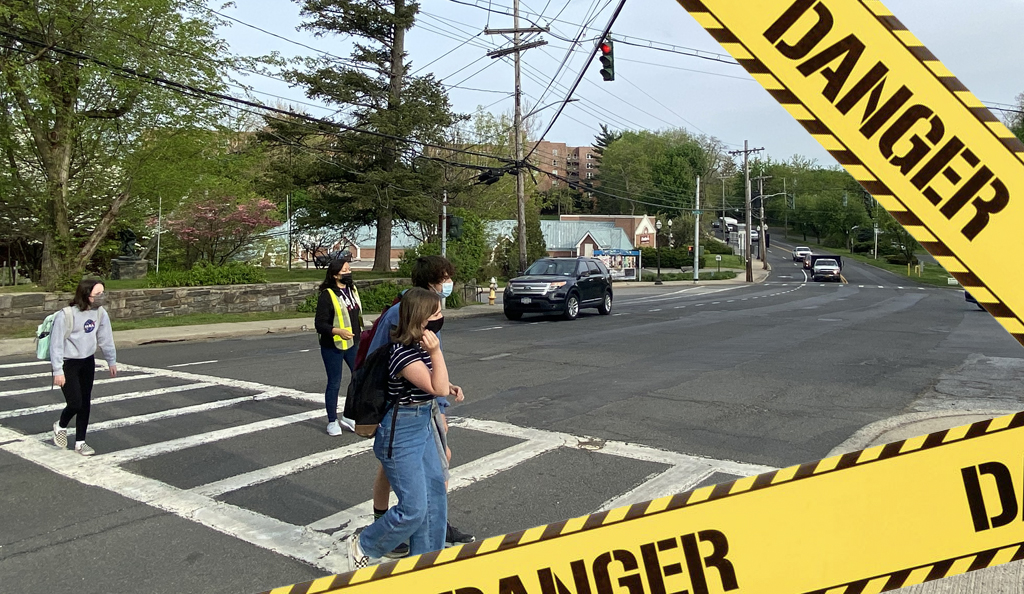Judging by the recent media backlash against a few bike lanes in New York City, you would think that roads have been the exclusive domain of cars since time immemorial.
Not so, as Peter D. Norton recounts in his book, "Fighting Traffic -- The Dawn of the Motor Age in the American City." When cars first entered cities in a big way in the early 20th Century, a lot of people were not happy about it -- like angry-mob not happy.
People were shocked by the carnage that resulted from motor vehicle crashes and outraged by new restrictions imposed on pedestrians. Newspapers of the time overwhelmingly sided against drivers, Norton writes.
In an overview of Norton's book, Copenhagenize illustrates the volatility of street politics at this turning point in the history of American cities. In the early 1900s, before the arrival of cars, people viewed streets much as they had for thousands of years:
It was a space for people. A place to walk, a place to play, a place to alight from a streetcar. Cars were regarded as violent intruders in this common space.
Norton highlights in the first part the massive public uprising against the automobile. The carnage caused by cars and trucks was enormous. "In the first four years after Armistice Day more Americans were killed in automobile accidents than had died in battle in France. This fact was widely publicized and the news was greeted with shock." It says a lot about the victory of Motordom in changing the mindset that the current annual toll of 40,000 deaths in the US - not to mention the injured - doesn't even register in the public consciousness.
Here's more, directly from Norton...
"...before the mid 1920's, cities were not at fault for failing to provide safe accommodation for motorists. To frightened parents and pedestrians the problem was far simpler: they blamed automobiles and their drivers, regardless of the circumstances. City people were angry. Their anger is shown in mob attacks on reckless motorists, and in newspapers that played up automobile accident stories when the victim was easy to represent as innocent (a child, a young woman, an old person), the victim of an unambiguous 'villain' (the motorist (...) the 'speed maniac', the fleeing criminal, the drunk)."
A clever and concerted marketing campaign by auto interests emerged in the 1930s and helped paint pedestrians as bumbling and accident prone, inventing, for instance, the concept of jaywalking. Auto interests also hit upon a winning strategy by portraying resistance to automobiles as "old-fashioned" and "anti-progress," according to Norton. The rest is history.
Elsewhere on the Network today: The Infrastructurist ponders the possibility of a vehicle mileage tax, a topic that has been coming up more frequently in states discussing how to fund infrastructure. The Bicycle Coalition of Greater Philadelphia reports that one car company is experimenting with retractable doors, which could reduce the threat of dooring to cyclists. And Mobilizing the Region reports on some members of the House GOP who support high-speed rail investment under certain conditions.

